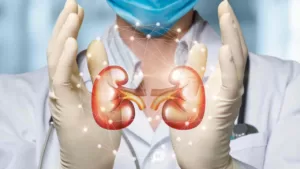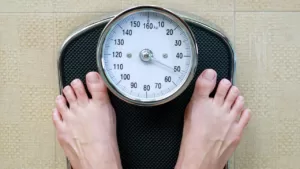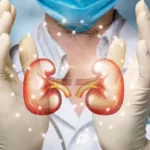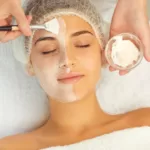The Best Fluffy Pancakes recipe you will fall in love with. Full of tips and tricks to help you make the best pancakes.
Identifying the Root Cause of Pimples on Oily Skin:
The occurrence of pimples on oily skin can be attributed to a variety of factors. While the excess sebum production is the primary cause, it is important to delve deeper to identify the root cause of these breakouts. One common culprit is hormonal imbalances. Fluctuations in hormone levels can lead to overactive sebaceous glands, producing oily skin and pimples. This is especially common during puberty, menstrual cycles, and pregnancy.
Another possible cause of pimples on oily skin is poor skin care hygiene. Failure to cleanse the face thoroughly can result in the accumulation of dirt, dead skin cells, and bacteria, which clog the pores and promote the growth of acne-causing bacteria.

Using harsh or comedogenic skincare products can worsen the issue by stripping the skin’s natural oils, causing it to produce more sebum as a defense mechanism. Identifying and addressing these root causes is crucial in finding an effective solution for managing pimples on oily skin.
Role of Diet in Managing Pimples:
The role of diet in managing pimples on oily skin cannot be overlooked. While external factors such as skincare routines and products play a significant role in controlling breakouts, what we put inside our bodies also impacts the health of our skin. Research suggests certain foods can trigger or worsen acne in individuals with oily skin.

High-glycemic foods spike blood sugar and insulin levels. Examples: white bread, sugary snacks, and processed foods.This, in turn, increases sebum production and inflammation, leading to acne. It is advisable to opt for low-glycemic index alternatives like whole grains, fruits, and vegetables, which have been found to positively impact skin health.
Additionally, reducing the intake of dairy products and food high in saturated fats has been reported to alleviate acne symptoms in some individuals. It is essential to consult a dermatologist or nutritionist to understand how your diet may affect your skin and develop a personalized approach to managing pimples on oily skin.
Effective Cleansing Techniques to Prevent Pimples:
Effective cleansing techniques are crucial when it comes to preventing and managing pimples on oily skin. Cleansing removes excess oil, dirt, and impurities from the skin, preventing them from clogging the pores and causing breakouts. For individuals with oily skin, opting for cleansers specifically formulated for this skin type is important, as they are designed to target and control oil production.

One effective cleansing technique for oily skin is double cleansing. This technique involves using an oil-based cleanser followed by a water-based cleanser. The purpose of an oil-based cleanser is to dissolve and eliminate excess oil and sebum from the skin. In contrast, the water-based cleanser helps to deeply cleanse the pores and remove any remaining impurities. Double cleansing not only helps to effectively remove oil and dirt from the skin but also helps maintain the skin’s natural moisture balance.
Choosing the Right Topical Products for Treating Pimples on Oily Skin:
Choosing the right topical products is crucial when treating pimples on oily skin. The market is flooded with various products claiming to be effective in targeting pimples. Still, not all of them live up to their claims. It is essential to look for products specifically formulated for oily skin with active ingredients that can combat acne-causing bacteria and regulate sebum production.

Topical products for oily skin should contain salicylic acid, a beta hydroxy acid that exfoliates the skin, unclogs pores, and reduces inflammation. It is particularly effective in treating pimples and preventing future breakouts. Additionally, benzoyl peroxide products can benefit oily skin as they have antimicrobial properties that can kill acne-causing bacteria and reduce oiliness. However, it is important to note that benzoyl peroxide can dry and may cause skin irritation. So, it is advisable to start with a lower concentration and gradually increase if tolerated.
The Importance of Regular Exfoliation in Controlling Pimples on Oily Skin:
Exfoliation is crucial in any skincare routine, especially for individuals with oily skin prone to pimples. Regular exfoliation helps to remove dead skin cells, unclog pores, and prevent the buildup of excess oil and bacteria that can lead to breakouts. By sloughing off these impurities, exfoliation controls pimples and promotes a clearer complexion.

When it comes to oily skin, finding the right exfoliation method is key. Mechanical exfoliants, such as scrubs, brushes, or loofahs, can effectively remove dead skin cells. However, it is important to be gentle to avoid irritation or damage to the skin. Chemical exfoliants use AHAs or BHAs to gently remove dead skin cells. It is advisable to consult with a dermatologist to determine the best exfoliation method and frequency for your specific skin type. Regular exfoliation should be incorporated into a comprehensive skincare routine to help control pimples and achieve a healthier, blemish-free complexion.
Incorporating Natural Remedies into Your Skincare Routine for Pimples on Oily Skin:
Using natural remedies as part of your skincare routine can effectively manage and prevent pimples on oily skin. Many natural ingredients have properties that help to regulate sebum production, reduce inflammation, and fight acne-causing bacteria. Incorporating these remedies into your daily routine can help improve your skin’s overall health and appearance.
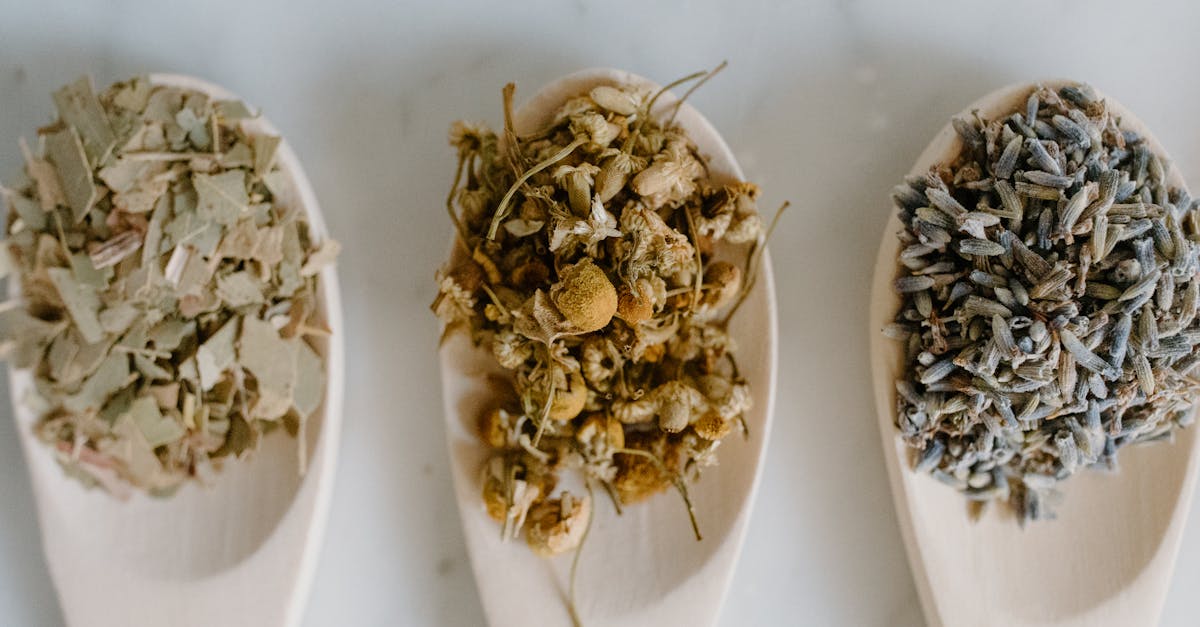
One popular natural remedy for oily skin is tea tree oil. This essential oil has antibacterial and anti-inflammatory properties, making it an ideal choice for treating pimples. You can dilute tea tree oil with a carrier oil, such as jojoba or coconut oil, and apply it directly to the affected areas. Another natural ingredient to consider is witch hazel. It acts as an astringent, helping to reduce excess oil and tighten the pores. Simply soak a cotton pad in witch hazel and apply it to your face after cleansing.
Managing Stress Levels to Reduce Pimples :
Stress can significantly impact your skin’s health, particularly for those with oily skin prone to pimples. When you are stressed, your body releases higher levels of cortisol. This hormone can trigger an increase in oil production and inflammation in the skin. This excess oil, along with the accumulation of dead skin cells and bacteria, can clog your pores and form pimples.

To manage stress levels and reduce the occurrence of pimples on oily skin, it is crucial to incorporate stress-reducing techniques into your daily routine. Exercise, for instance, has been shown to be an effective stress reliever. Engaging in regular physical activity not only helps to lower cortisol levels but also promotes healthy blood flow, which can aid in regulating oil production and preventing breakouts. Additionally, practicing relaxation techniques such as deep breathing, meditation, or yoga can help to calm the mind, reduce stress levels, and ultimately improve the overall health of your skin.
The Role of Proper Hydration in Balancing Oily Skin and Preventing Pimples:
Proper hydration plays a crucial role in maintaining the balance of oily skin and preventing the occurrence of pimples. When the skin is dehydrated, it compensates by producing more sebum, the natural oil that keeps the skin moisturized. This excess sebum can clog the pores and lead to the formation of pimples. Ensuring that your skin is well-hydrated can help regulate sebum production and minimize the chances of developing acne.

One effective way to hydrate the skin is by drinking adequate water throughout the day. Water helps flush out toxins from the body and keep the skin cells hydrated. Additionally, hydrating moisturizers and serums specifically designed for oily skin can provide the necessary hydration without making the skin feel greasy. Look for products that contain ingredients like hyaluronic acid, which can attract and retain moisture in the skin, helping to maintain its natural balance.
Avoiding Common Mistakes and Habits that Aggravate Pimples :
Mistakes and habits can significantly impact our skin’s health, especially when it comes to oily skin prone to pimples. One common mistake is neglecting to properly cleanse the face. Oily skin produces excess sebum, which can clog pores and lead to breakouts.

Failing to cleanse the skin thoroughly can result in a buildup of oil, dirt, and bacteria, exacerbating the problem. It is important to cleanse the face twice a day using a gentle cleanser specifically formulated for oily skin. Also, avoid harsh scrubbing as this can irritate the skin and stimulate more oil production.
Another mistake that aggravates pimples on oily skin is touching or picking at the face. Our hands come into contact with numerous germs and bacteria throughout the day, and touching the face transfers those impurities onto the skin.
Seeking Professional Advice and Treatment Options for Persistent Pimples
When it comes to persistent pimples on oily skin, seeking professional advice and treatment options is essential. Dermatologists are experts in diagnosing and treating various skin conditions, including acne. They possess the knowledge and experience to identify the root cause of your persistent pimples and provide appropriate treatment strategies.
During a consultation with a dermatologist, they will thoroughly examine your skin and assess your medical history. This evaluation is crucial in determining the underlying factors contributing to your oily skin and persistent pimples. Based on their findings, the dermatologist may recommend a combination of treatments such as topical creams, oral medications, or procedures like chemical peels or laser therapy.

It is important to follow the prescribed treatment plan diligently and communicate any concerns or changes in your skin to ensure the best possible outcome. Remember, seeking professional advice and treatment options for persistent pimples on oily skin can significantly improve your skin health and boost your confidence.
• Dermatologists diagnose and treat various skin conditions, including acne.
• They possess the knowledge and experience to identify the root cause of persistent pimples on oily skin.
• A thorough examination of your skin and assessment of your medical history will be conducted during a consultation with a dermatologist.
• This evaluation is crucial in determining the underlying factors contributing to your oily skin and persistent pimples.
• Based on their findings, the dermatologist may recommend a combination of treatments such as topical creams, oral medications, or procedures like chemical peels or laser therapy.
• It is important to diligently follow the prescribed treatment plan for best results.
• Communicate any concerns or changes in your skin to ensure the best possible outcome.
FAQ Related to Pimples on Oily Skin
What are the common causes of persistent pimples on oily skin?
The common causes of persistent pimples on oily skin include hormonal imbalances, excessive sebum production, clogged pores, bacteria buildup, and certain medications or skincare products.
How can I identify the root cause of pimples on my oily skin?
It is best to consult a dermatologist who can assess your skin condition and medical history to identify the root cause of your pimples on oily skin. They may perform tests or examinations to determine any underlying factors contributing to your skin condition.
Can diet affect the occurrence of pimples on oily skin?
Certain foods high in refined sugars, dairy products, and greasy or fried foods have been associated with an increased risk of developing pimples on oily skin. Maintaining a balanced diet with plenty of fruits, vegetables, whole grains, and lean proteins is advisable.
What are some effective cleansing techniques for oily skin to prevent pimples?
Effective cleansing techniques for oily skin include:
- Using a gentle cleanser twice daily.
- Avoiding harsh scrubbing or over-washing.
- Using oil-free or non-comedogenic skincare products.
It is also important to remove makeup thoroughly before bedtime.
How do I choose the right topical products to treat pimples on oily skin?
Look for topical products that contain ingredients like salicylic acid, benzoyl peroxide, or tea tree oil, as they can help control oil production and fight acne-causing bacteria. However, it is best to consult a dermatologist to determine the most suitable products for your skin needs.
Why is regular exfoliation important in controlling pimples on oily skin?
Regular exfoliation helps to remove dead skin cells, unclog pores, and prevent the buildup of excess oil and bacteria, which can contribute to the formation of pimples on oily skin. However, it is important to choose gentle exfoliators and not overdo it, as excessive exfoliation can irritate the skin.
Are there any natural remedies that can help with pimples on oily skin?
Some natural remedies that may help with oily skin pimples include tea tree oil, witch hazel, aloe vera, or green tea extract. However, it is advisable to consult with a dermatologist before incorporating any natural remedies into your skincare routine.
Can stress levels affect the occurrence of pimples on oily skin?
Yes, stress can contribute to hormonal imbalances and increased oil production, leading to pimples on oily skin. Managing stress through relaxation techniques, exercise, and adequate sleep can help reduce the risk of pimples.
How does proper hydration balance oily skin and prevent pimples?
Proper hydration helps to maintain the skin’s natural moisture balance, preventing it from overproducing oil to compensate for dryness. Drinking an adequate amount of water daily can help keep the skin hydrated and potentially reduce the occurrence of pimples on oily skin.
What are some common mistakes and habits that aggravate pimples on oily skin?
Some common mistakes and habits that aggravate pimples on oily skin include touching or picking at the pimples, using heavy or greasy makeup products, not removing makeup before bed, not washing the face regularly, and using harsh or drying skincare products.
When should I seek professional advice and treatment options for persistent pimples on oily skin?
If you have tried various skincare techniques and over-the-counter products without improvement, or if your pimples on oily skin are severe, painful, or causing emotional distress, it is recommended to seek professional advice from a dermatologist. They can provide personalized treatment options to address your specific skin concerns.

